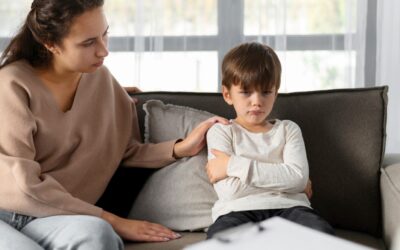Recognizing when your grandparent needs professional home senior care can be a challenging and emotional process. However, it is crucial to identify the signs early to ensure their well-being and safety. If you notice any of these signs, it may be time to explore...
Children’s Mental Health
The Expenses Parents of an Injured Newborn Will Incur
The arrival of a baby generally brings excitement. Sometimes, birth injuries may quickly turn this happiness into anxiety and tension. Parents of such newborn babies often face unexpected challenges and expenses. Knowing what lies ahead can improve your preparedness...
A Parent’s Guide to Weight Loss Medications: Substitutes to Ozempic
In 2024, more than a billion people around the world are living with obesity. Among them, a major number of parents, caregivers and children are also confronted with this chronic disease. Due to rising rates of obesity, there is a growing need for effective weight...
3 Ways to Create a Positive Learning Environment for Your Child at Home
Teachers spend hundreds of hours creating activities, lesson plans, and a safe environment for students to thrive. Maintaining the same environment in your house can help your kids grow and succeed in their education. You need to create a positive learning space where...
Tips for Parents to Improve Their Students’ Essay Writing Abilities
Arguably, one of the most important gifts you can give your child as a parent is helping them to cultivate a skill that will benefit them throughout their youth and into adulthood: strong essay writing. Good writing will help kids do well in school and fuel strong...
HYPER GOGO Kids Ride-On Toys: The Ultimate Guide for Parents
As parents, we always strive to give our children the best, and ride-on toys have become a must-have for every child when they play. Not only do these toys provide endless fun, but they also help children develop motor skills and spatial awareness. In this...
Safeguarding the Mental Health of a Child During Divorce
Divorce is a very stressful and emotionally charged situation, not only for the couple involved but for the children as well. While parents work on the complexities of separation, they should always be mindful of the mental health and welfare of their children. The...
How to Care for Your Child with Diabetes
Caring for a child with diabetes is a balancing act that requires careful planning, patience, and a positive mindset. As a parent and your child’s primary caregiver, it is essential you take a proactive approach, as this can help give you a sense of control over the...
Tips for Parents to Help Students With Their Studies
Sometimes, it feels like you’re trying to catch a wild stallion – yet it’s worth the effort! Here’s what you can do to turn homework from an all-out battle into a calm, rewarding, and enjoyable experience. 1. Create a Study-Friendly Environment First, we must create...
Proven Strategies to Support and Motivate Your Child at School
Parental support is crucial to a child's academic success and overall well-being. Motivated and supported children are more likely to develop a positive attitude towards school, engage in their studies, and achieve their full potential. However, knowing how to provide...
Balancing Parenthood and Career: How a Staffing Agency Can Help
Balancing parenthood and a career is one of the most challenging tasks many individuals face today. Juggling work responsibilities with family demands can often feel like an insurmountable task. For parents in Houston, this challenge can be significantly mitigated by...
Budgeting for Your Wedding and Future: Financial Tips for Young Families
Finance is a challenging subject of discussion for many new couples. The reasons may be one or many, such as fear of judgment, different beliefs, and varying priorities. However, discussing money matters is key to starting a marriage right. You should be able to...












